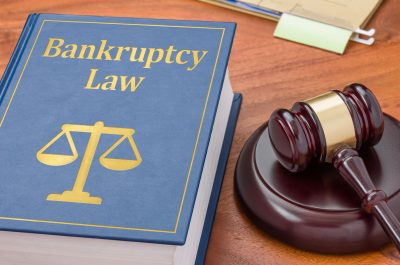Bankruptcy exemptions in Oklahoma will help you protect certain assets when you file chapter 7 bankruptcy. One of the biggest misconceptions about bankruptcy is that people who file are absolutely destitute. This is not the case. Often, debtors will have money in a checking or savings account. Perhaps even a significant amount of money exists in a retirement account or other investment. Another misconception is that if a person declares bankruptcy, they will lose these assets. This is often not the case. When a person declares bankruptcy, all of their possessions and assets, theoretically, go into the “bankruptcy estate”. This allows a government appointed manager, called a “trustee”, to oversee all of the assets and distribute the assets to the debtor’s creditors.
exists in a retirement account or other investment. Another misconception is that if a person declares bankruptcy, they will lose these assets. This is often not the case. When a person declares bankruptcy, all of their possessions and assets, theoretically, go into the “bankruptcy estate”. This allows a government appointed manager, called a “trustee”, to oversee all of the assets and distribute the assets to the debtor’s creditors.
However, both federal and state law contain “exemptions” provisions. Exemptions are exactly what they sound like. They exempt certain kinds of property from the bankruptcy estate. In many Chapter 7 cases, the exemptions cover all of the debtor’s property. So, he or she doesn’t lose any property in the bankruptcy.
What Are Some Bankruptcy Exemptions in Oklahoma:
In the State of Oklahoma, the bankruptcy laws offer exemptions for certain kinds of financial accounts. The key to these exemptions is the difference the law sees in income and general assets. One of the primary exemptions written into the law is that the income from a person’s employment or benefits, whether it is from a job, from self employment, from Social Security, or from some other government program, is exempt. In practice, this means that wherever that money is put, that asset is exempt. Now, obviously, this could create difficulty in tracing the how an individual debtor moves his or her money around, so the law simplifies the process.
In Oklahoma law, a checking account at a bank or credit union is exempt. The law reasons that a checking account is where most people deposit their income, and therefore the funds inside the account are most likely to be exempt as income. On the other hand, since fewer people have savings accounts, and savings accounts tend to be investment vehicles rather than what someone would use for everyday purchases, they are non-income assets.
More Examples of Bankruptcy Exemptions in Oklahoma:
It means that for someone filing a bankruptcy, the money inside their checking account is exempt. However, the money in a savings account is not. Similarly, certain kinds of investment vehicles may also be income. The largest type of these is retirement accounts. The law reasons that the money put into retirement accounts is directly from income (and in the case of many common retirement accounts, it is directly deducted by an employer from pay). Thus, retirement accounts, like 401(k)s, IRAs, and pensions are exempt. On the other hand, general stocks, bonds, or other securities are generally not income, unless they are in a recognizable retirement instrument.
Several other instruments, particularly trusts, may or may not be exempt, depending on how the instrument is constructed. This is often determined on a case by case basis, so if you believe you have such an asset, it is best to consult your attorney to determine if the instrument is exempt or not. One final note: if creditors sued you for past debts, bankruptcy may be the best way you have to protect your exemptible assets. Creditors who win judgments against you in a court can (and quite often will) garnish your paychecks and
Bankruptcy Exemptions in Oklahoma Help Save Your Property:
If your having problems with debt bankruptcy may be for you. Our bankruptcy attorneys can help you navigate the difficulties of debt and get you a fresh start. You don’t have to live with the fear of garnishments and judgments. We care about you and we can help. Call for a free consultation or review our claremore attorney blog for more information.
